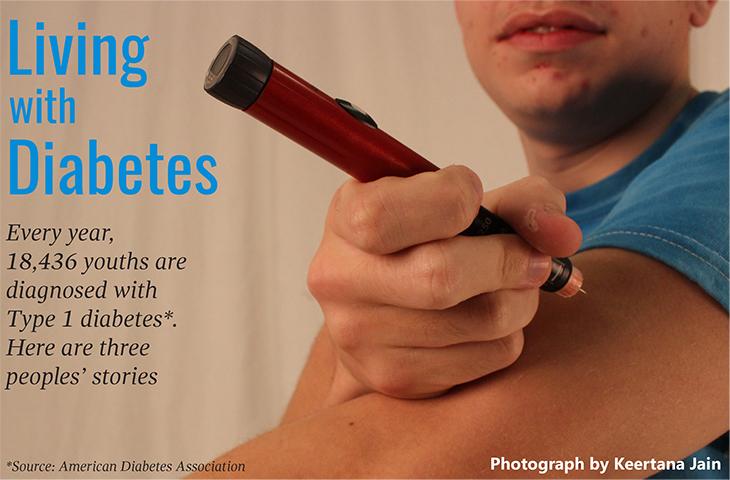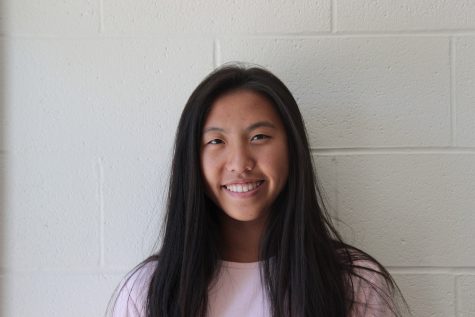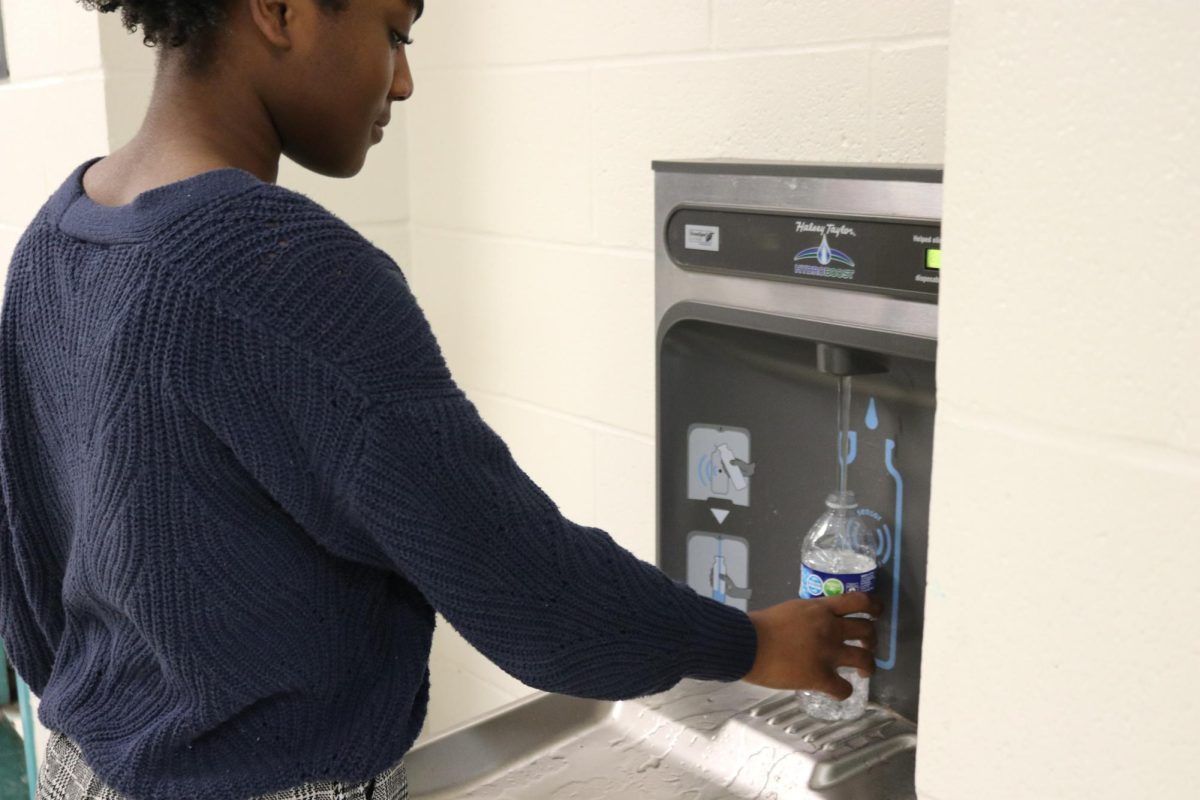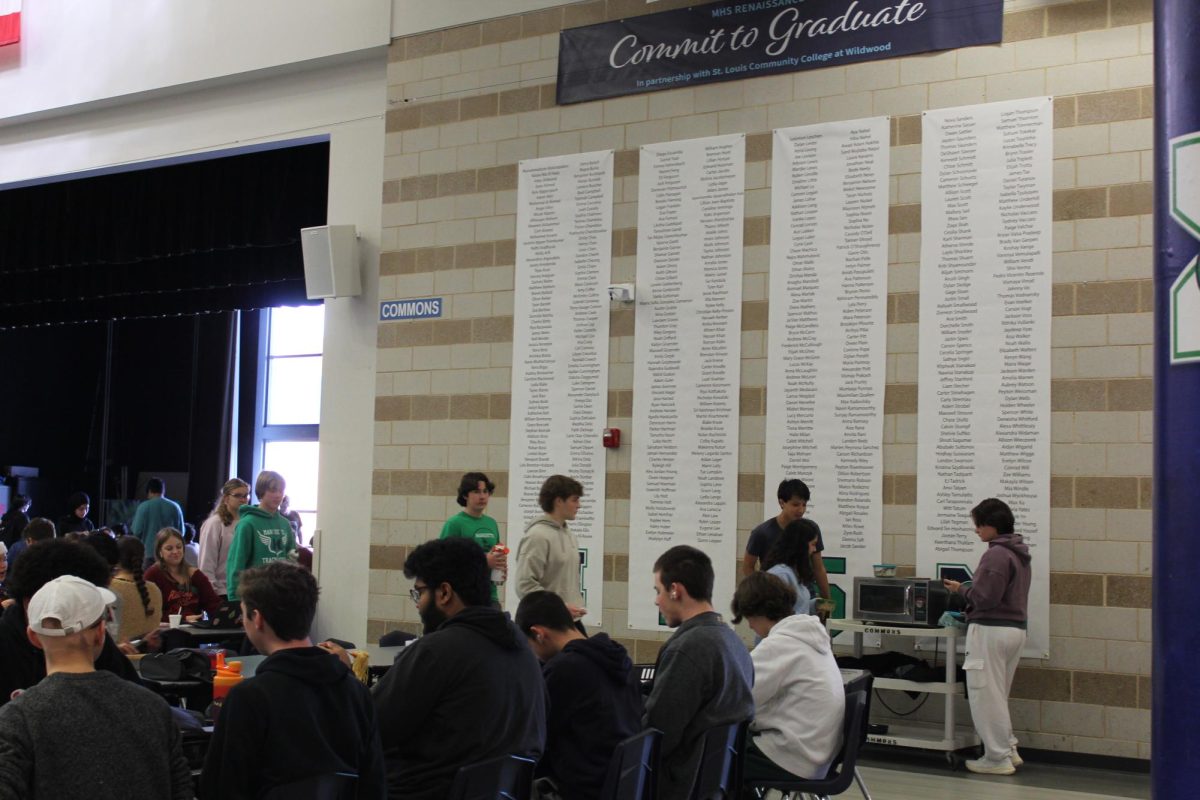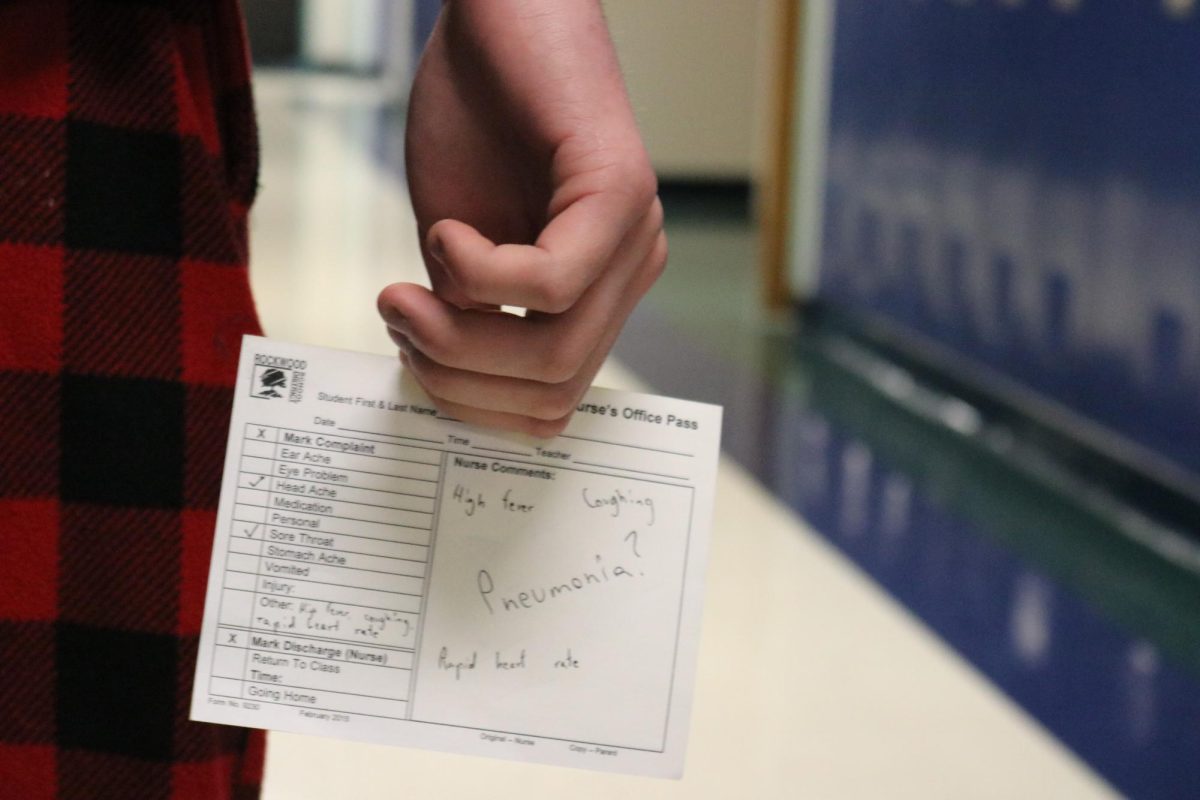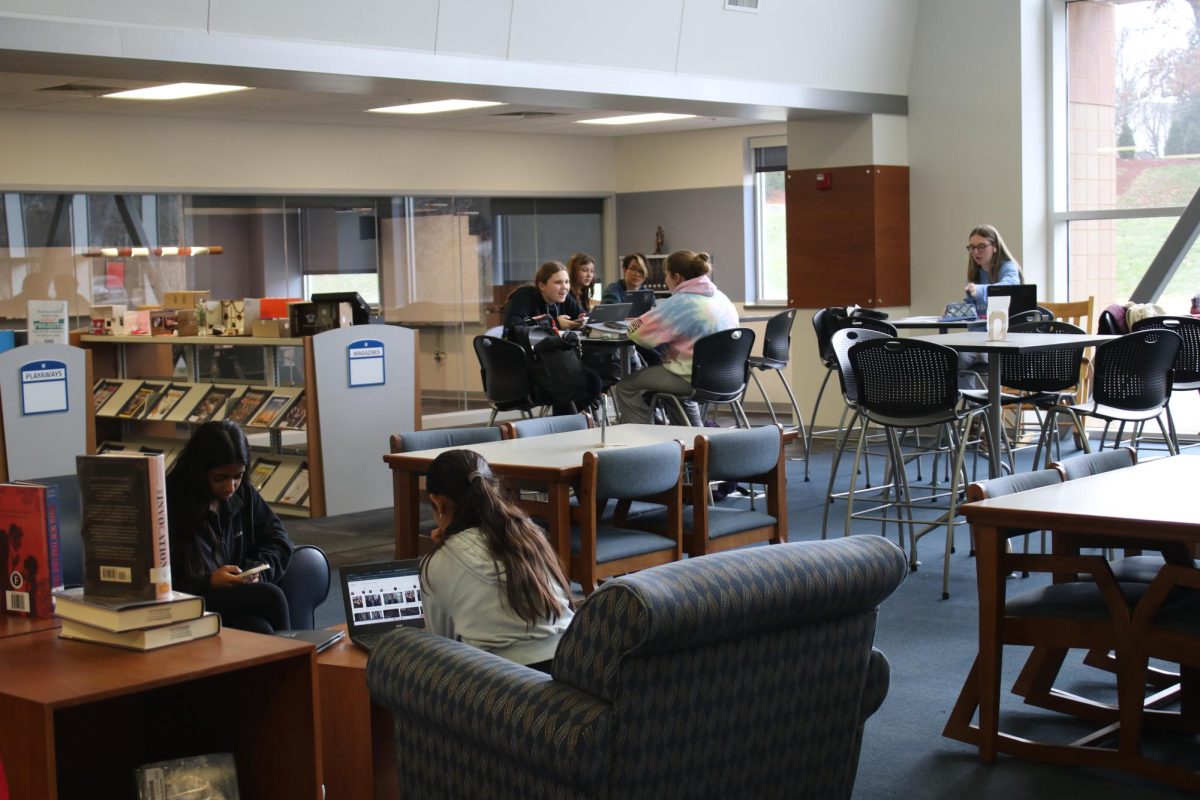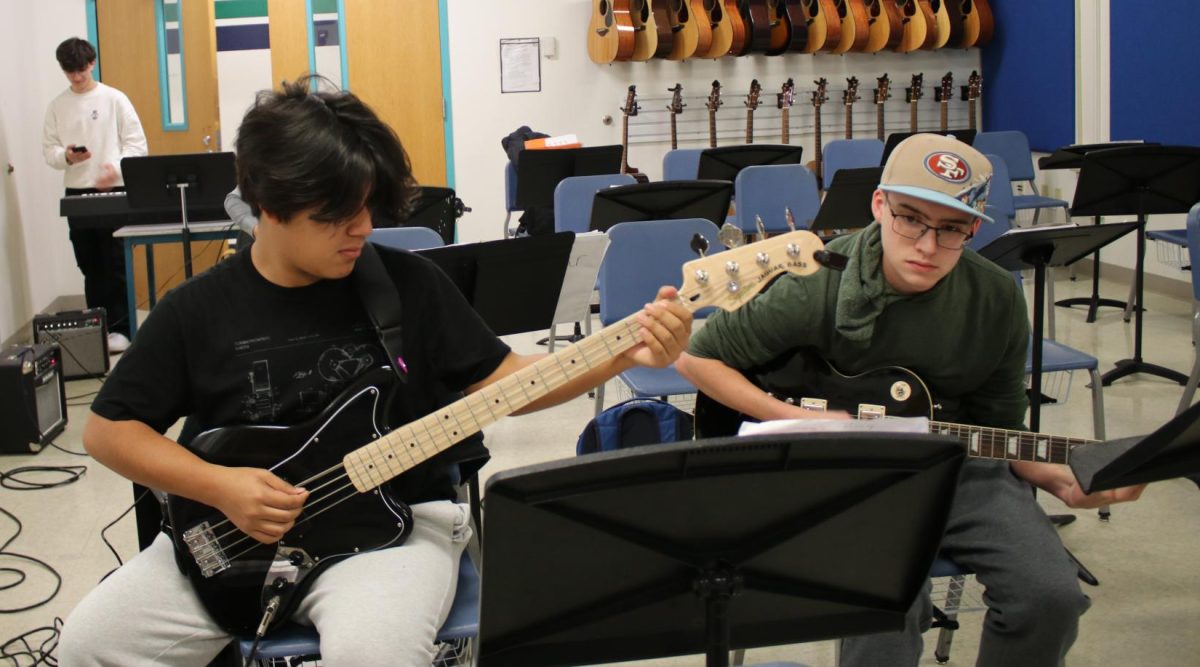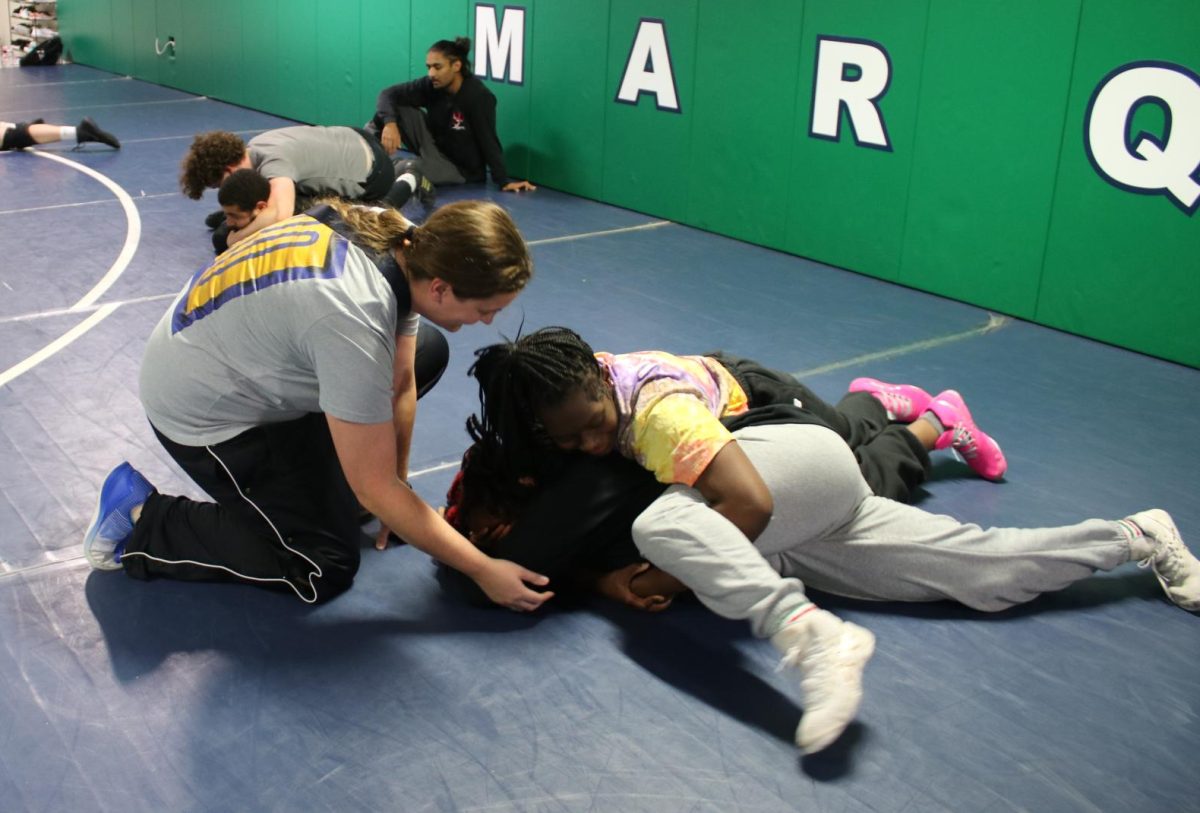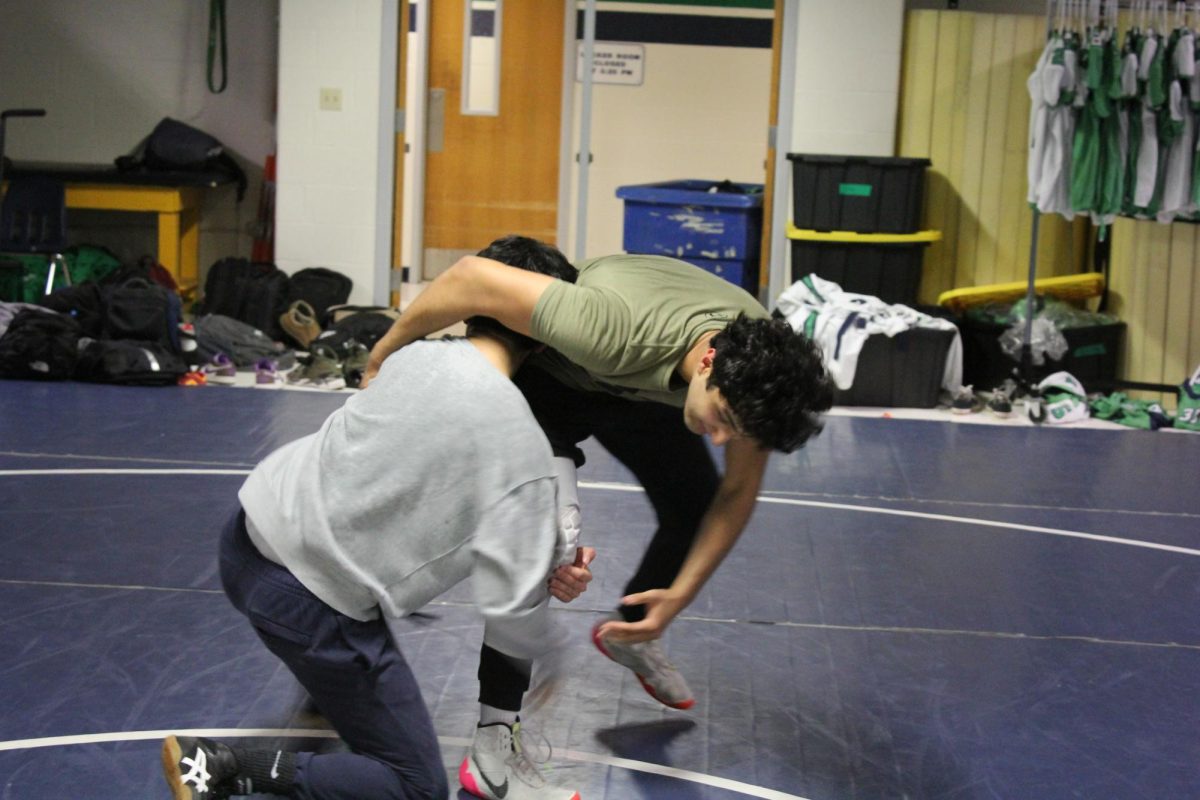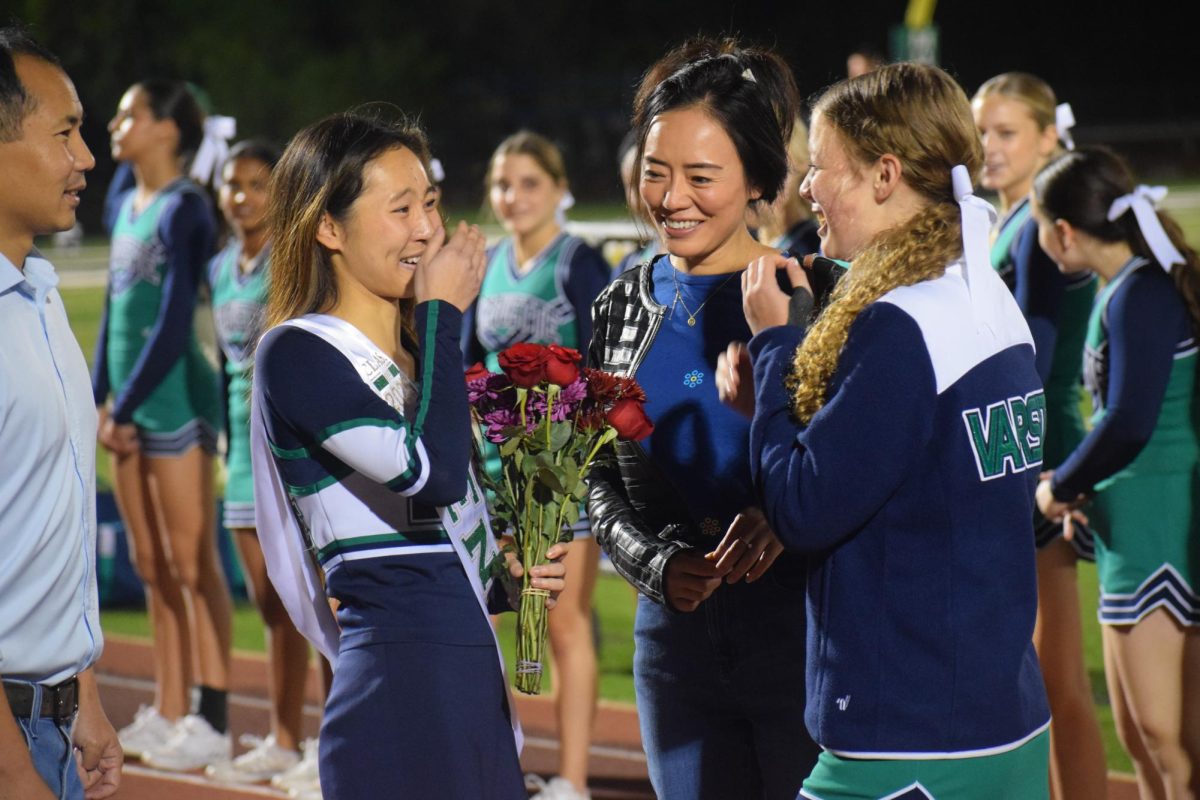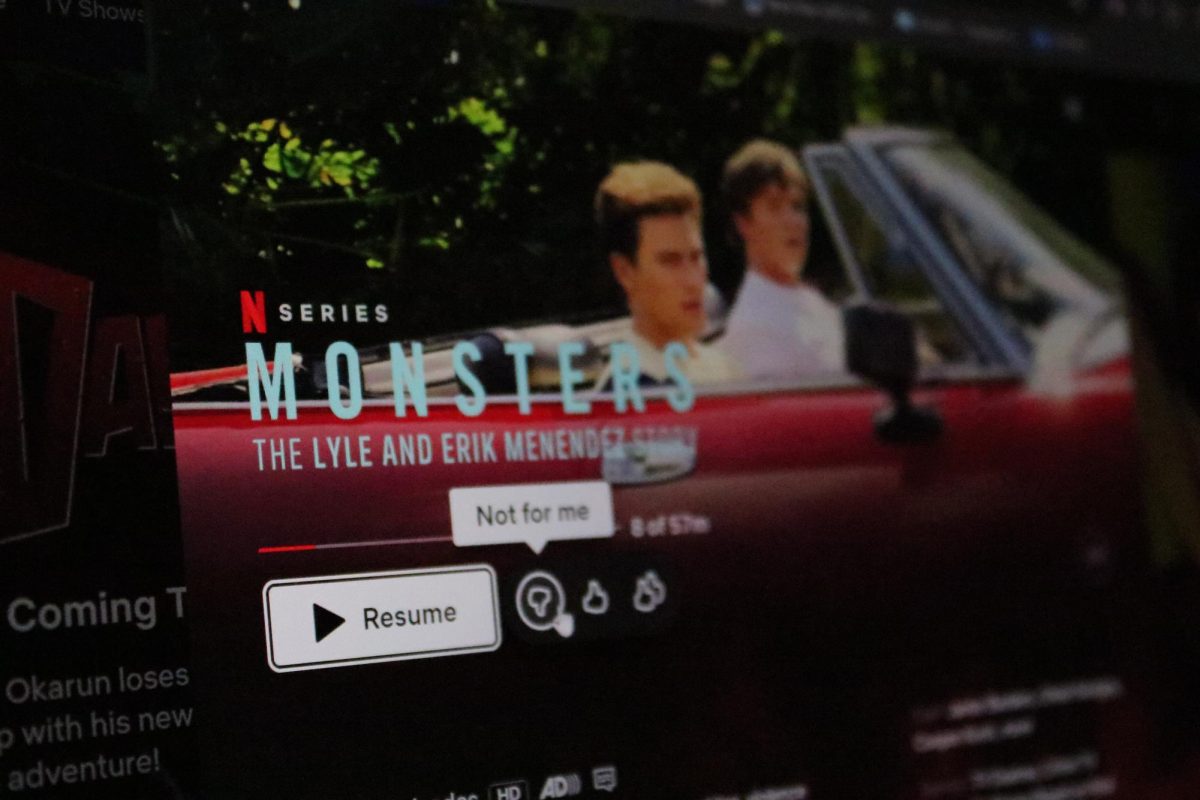Students describe the struggle with diabetes
December 14, 2015
“Girl you’re so sweet you’re gonna ruin my H1AC.
“I ditched the pancreas to make more room for you in my heart.
Pat Thomas, senior, is one of about the 208,000 Americans under 20 living with diabetes. In the present day, he’s embraced his diabetes, coming up with these diabetes pick up lines. But it wasn’t always this way.
At age five, Thomas began feeling sick. He felt nauseated all the time. So he was taken to the hospital where he was diagnosed with Type 1 Diabetes, a disease in which the pancreas shuts down and the body doesn’t produce insulin. This completely shocked his family as his older brother had been diagnosed too. Having two siblings with diabetes was something doctors told them they didn’t have to worry about because it was incredibly rare.
“My mama cried of course, she knew that it’s not an easy life from my brother and knew it was just going to be tougher for her,” Thomas said. “No parent wants to hear that two of their children have a terrible illness and there’s nothing you can do to help them.”
He said he initially felt embarrassed by his diabetes and would pretend he didn’t have it.
“I’d get sick a lot because I’d see all my friends eating a big piece of cake, and I’d never say I shouldn’t have that so I’d eat it and kind of mess myself up,” he said.
When people made comments like “How did you get it? Did you eat too much candy?’ he felt extremely frustrated. Thomas is also angered by the restrictions diabetes place on him. He has always wanted to fly a plane like his mom, but cannot. There are also inconvenient times where in the middle of sports, he has to stop, sit down, and eat some candy to keep his blood sugar up.
Now, Thomas has largely accepted his diabetes. He said coming to terms with his terminal illness has put things in perspective and taught him discipline.
“If I don’t watch this constantly 24/7, I’m going to get sick and die,” Thomas said. “That’s something that changes how you live and act I’d say.”
Audrey Wind, junior, was also diagnosed with Type 1 Diabetes at a young age. She was six, and like Thomas, one day she just started not feeling well, was promptly taken to the hospital, and was diagnosed with diabetes. However, her initial attitude was one more of confusion since she didn’t know what it would entail for the rest of her life.
“At that point, I didn’t really care because I wasn’t really doing it,” Wind said. “It was my mom more doing it for me.”
To care for her diabetes, Wind takes Humalog, a fast-acting insulin, and Lantus, a long-lasting insulin, at night. At school, she checks her blood sugar before lunch and gives herself a shot in the lunchroom or in her class right after lunch. When she first started to do this without her mom, she struggled because she didn’t know what she was doing. But after the adjustment period passed, she said it wasn’t that hard. Wind said as a little kid it was kind of annoying, but now she accepts it because she knows that it’s what she has to do to be able to live.
“You kind of just have to move past it,” Wind said. “I can’t be mad about this because I don’t get to not deal with it.”
Mark Butler, junior, was diagnosed with Type 1 Diabetes in eighth grade. He said his parents were freaking out more than he was. They researched different sorts of methods, subscribed to magazines and read the internet, whereas he just did it and took care of himself.
Butler manages his diet by watching what he eats and looking at the daily value charts. He counts up every carb he eats, and takes the appropriate amount of insulin for them.
Butler said being forced to watch what he eats helps create better habits, which will be helpful for staying healthy in college. He said he’s never really been frustrated with his diabetes.
“It gives me a trait that a vast majority of people don’t have,” Butler said. “It makes me an individual, it makes me interesting.”



